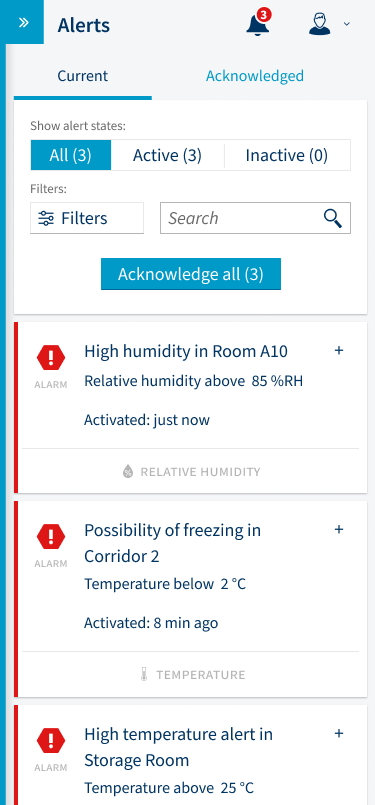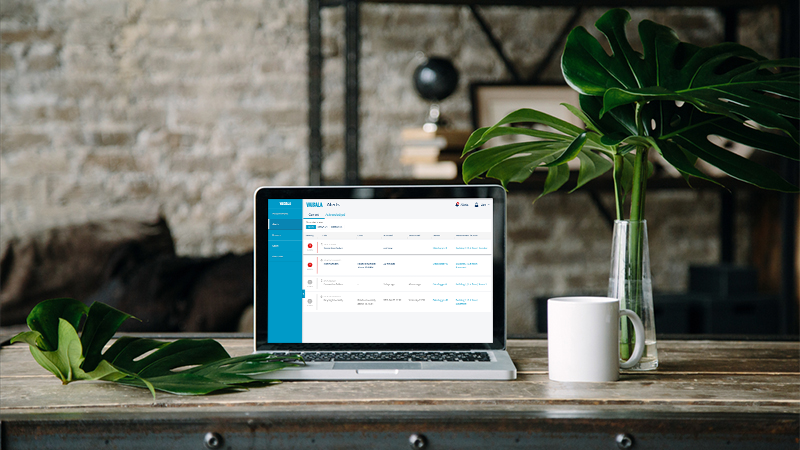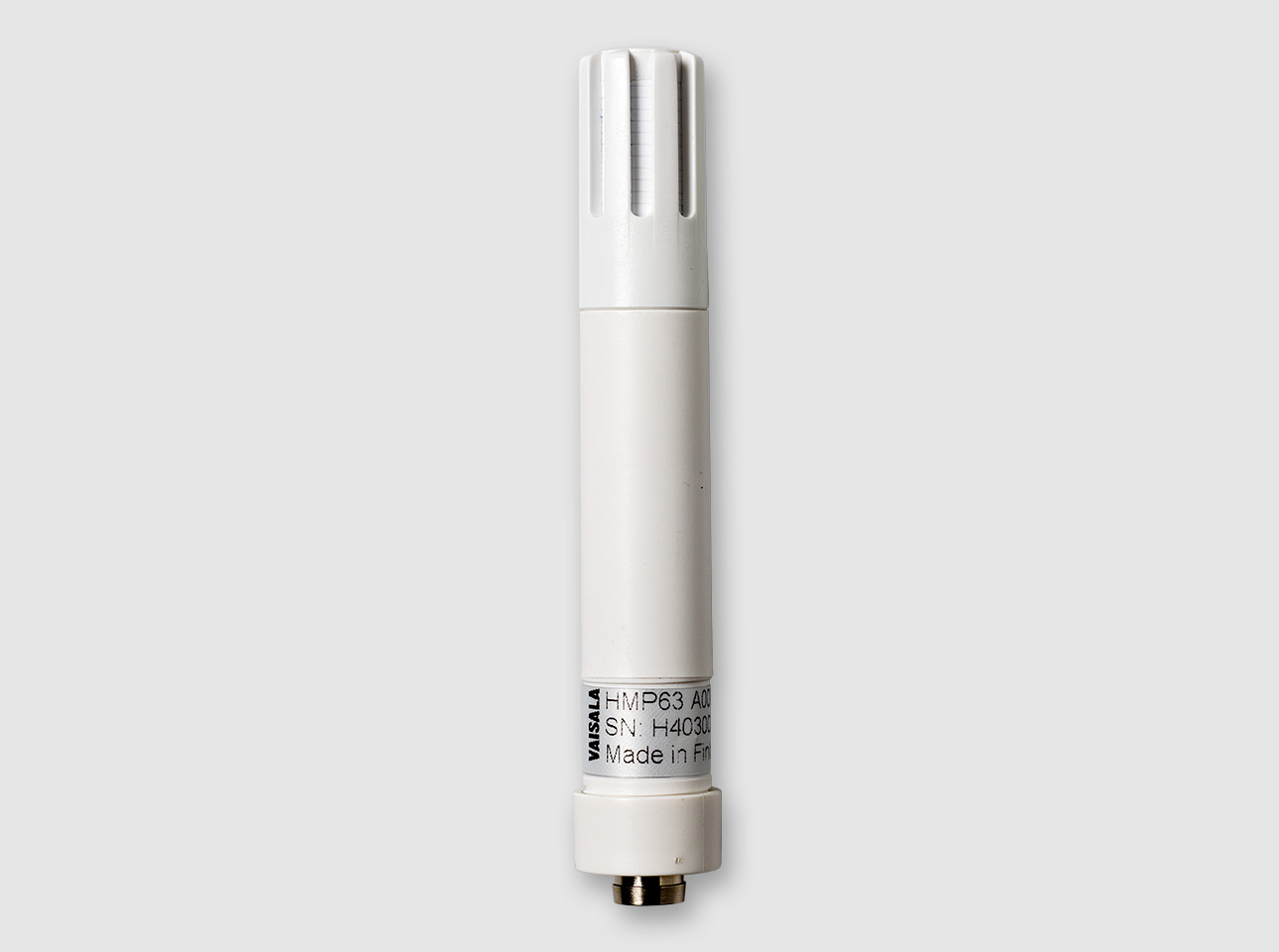What role do alerts play in a modern measurement system?
Nowadays we are bombarded by notifications, especially on our smartphones, where we might receive several every hour. Alerts are notifications about exceptional situations in your system; they make sure you are forewarned if conditions take a turn for the worse, helping to prevent disaster or harm to your business. For example, a freezer malfunctioning – whether it contains foraged berries or vital samples – could result in the loss of all contents and mean that all the work done to collect or develop them has gone to waste. Or what about a piece of art in a museum being permanently destroyed because of a small error in the air-handling or air-conditioning system humidity setpoint? Some alerts may never be triggered, but it is good to know that they are there for you when you need them – there are many possible situations where a reliable and properly configured monitoring system with alert features can save valuable physical and cultural capital.
There are at least two core assumptions about alerts:
- they must be reliable, and
- they must indicate the real state of the system.
There is nothing worse than an unreliable alert system that provides erroneous notifications.

A flexible template for success
You should be able to set the alert limits in an easy way and be sure that when a potential problem occurs you will catch it with a properly configured alert rule. Alert rule settings should be flexible enough to cover one or more alert limits and additional parameters like hysteresis and alerting delay configured per measurement requirements. Alert rules act as templates for situations that you want the system to notify you about. You can easily use the same template with multiple measurement points related to similar monitoring schemes. For example, all freezers located in a building can share the same temperature alert rule if they all contain similar items. Templating means less work for you, both during the system setup phase and when you want to change the alert limits for all your measurement locations, allowing you to update multiple locations with a single click.
Stay up to date at all times
When talking about alerts we often think about measurement alerts, but there are many other different types of alerts including device and system alerts. These will notify you when something unwanted happens with your devices, for example, if a device loses its connection to the system or when the batteries in a wireless system are running low. It is vital to be aware of the system status even when you are not able to constantly check it from the user interface, and this is why alerts are an important tool.
Share information with the right people
You might be asked to share measurement information from your environmental monitoring system with third parties, and at that point, you need to think about alerts too. Do you really want to share all the information, including alerts, or only the measurement values that the site supervisor asked you to share? If you decide to limit access to the data you can assign different user roles in the system so that only the people you choose get to see the alerts.






Add new comment